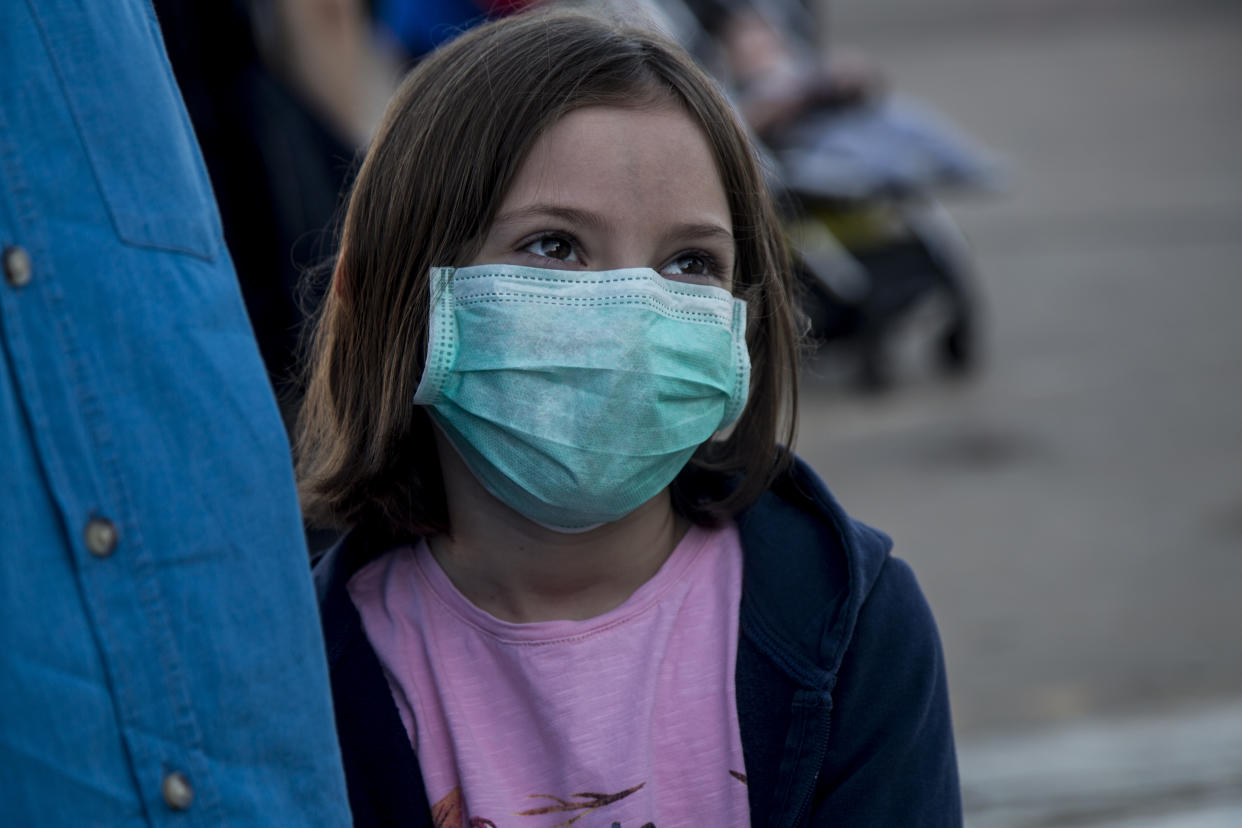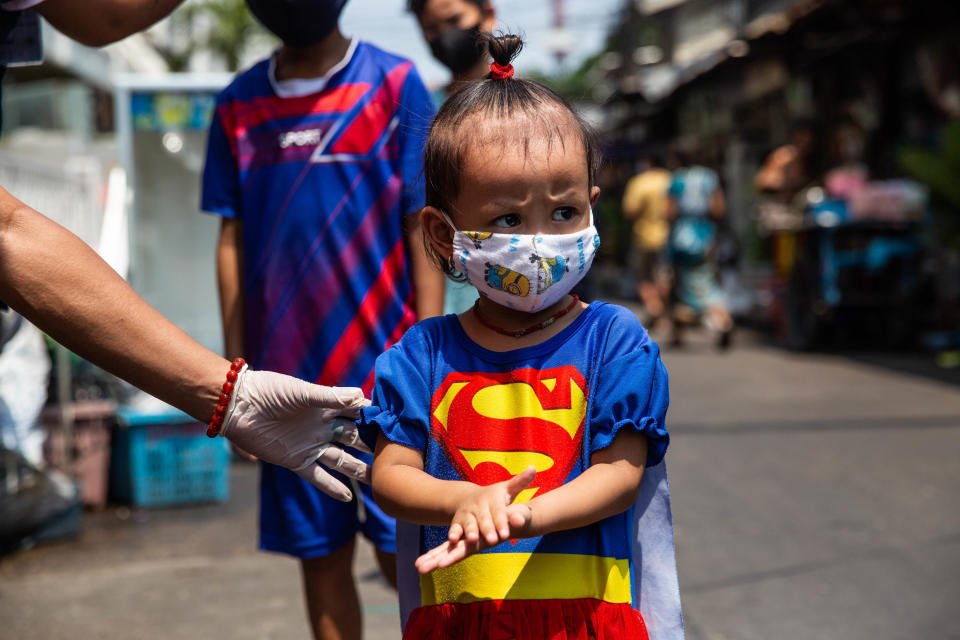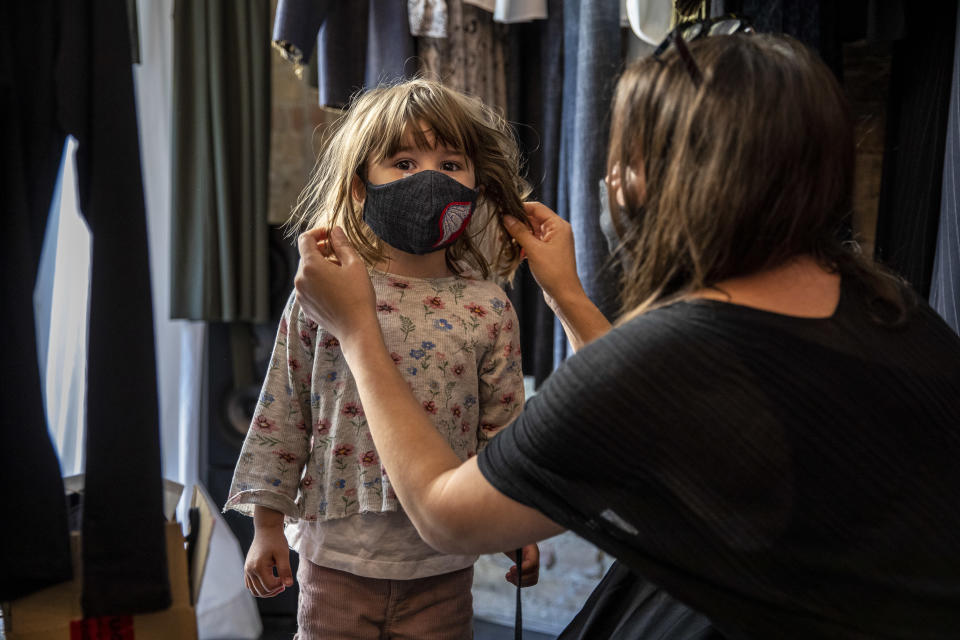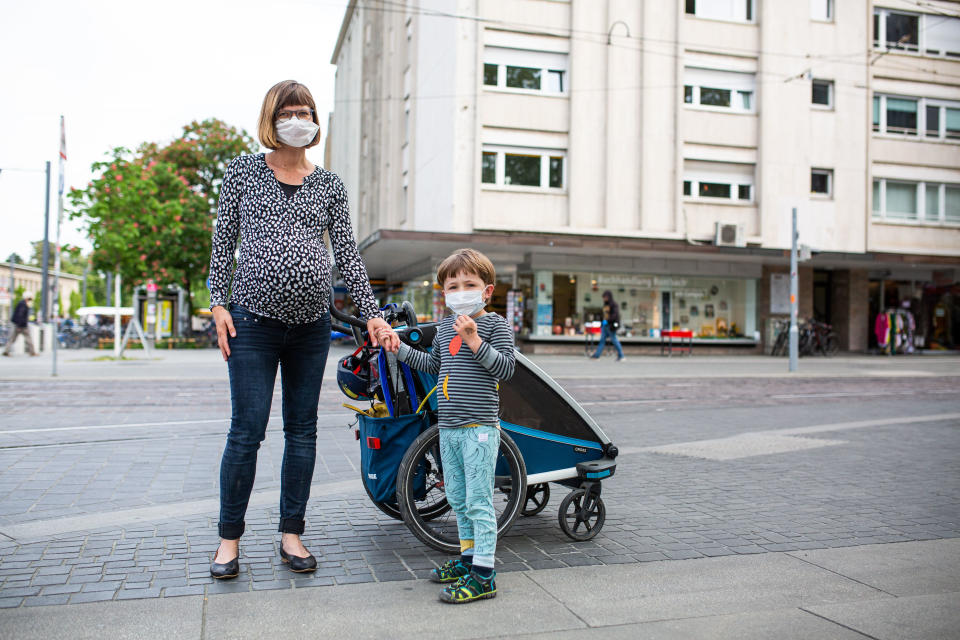Coronavirus: Study of 1,000 children with coronavirus found just one developed severe disease

A study of more than 1,000 children infected with the coronavirus found just one developed a severe case of the respiratory disease COVID-19.
As the world tries to get a handle on the pandemic, Italian scientists felt there was limited data showing how the virus affects young people.
After looking at more than 1,065 infected children across 18 studies, they found the vast majority were asymptomatic or developed only a mild cough, fever or fatigue.
Just one case of severe COVID-19 was identified: a 13-month-old baby, who beat the disease.

Coronavirus: Children largely develop mild or no symptoms
The scientists, from the Fondazione IRCCS Policlinico San Matteo hospital in Pavia, set out to analyse coronavirus outcomes in people under 19.
All but one of the studies were carried out in China, where the virus is thought to have emerged at a seafood and live animal market in Wuhan, capital of Hubei province.
The other study was from Singapore.
Latest coronavirus news, updates and advice
Live: Follow all the latest updates from the UK and around the world
Fact-checker: The number of COVID-19 cases in your local area
Explained: Symptoms, latest advice and how it compares to the flu
Most of the cases were picked up in hospital. It is unclear if the children had underlying health conditions or caught the virus while being cared for.
Results, published in the journal JAMA Pediatrics, show just one baby developed pneumonia as a result of the infection.
Pneumonia occurs when a respiratory infection invades the air sacs in the lungs, causing them to become inflamed and filled with pus or fluid.
The lungs may struggle to draw in air, causing oxygen levels to drop and carbon dioxide to accumulate in the bloodstream.
The baby’s pneumonia was complicated by shock – a sudden drop in blood flow, and kidney failure – when the organs are unable to filter waste from the blood.
The infant recovered after intensive care and ventilation.
A 30-hour newborn also developed “mild respiratory distress”, or breathing difficulties, after catching the infection from its mother.
The coronavirus is not thought to spread via the womb or breast milk. The infant is expected to have picked up the virus when it came into contact with its mother or in the birth canal.
A 17-day-old baby required intravenous hydration after the coronavirus triggered vomiting, not a common symptom.
Neither of the latter infants required oxygen or ventilation.
Two of the children in the study were given antibiotics for their pneumonia.
Antibiotics are only effective against bacteria, not viruses.
The drugs may have been prescribed incorrectly or the children could have developed bacterial pneumonia as a secondary infection after the coronavirus.
Overall, the children who developed mild symptoms generally recovered within one to two weeks.
Youngsters are thought to have “sharper” immune systems, helping them fight off the infection.
“As we get older, so do our immune systems, which results in them becoming slower and less effective at fighting off infections that we have previously come across,” Professor Arne Akbar from the British Society for Immunology previously said.
Speaking of the Italian research, Dr Susan Tansey from the Faculty of Pharmaceutical Medicine pointed out it only looked at studies completed between December and March.
She argued this is a “rapidly evolving situation” and more recent studies were excluded.
“My main conclusion is this review underlines the need for further global well-designed studies to look at the incidence of asymptomatic and symptomatic coronavirus infection in children,” said Dr Tansey.
“Attention needs to be paid to recording data on underlying conditions where present and the potential modes of transmission particularly for the newborn.
“It is also extremely important to include children in randomised controlled clinical trials of potential therapies and vaccines being developed for COVID-19.”

Coronavirus: To what extent do children spread the infection?
While it may be reassuring to hear many of the cases were asymptomatic, this raises concerns about whether children without signs of the infection may spread it.
Boris Johnson has introduced draconian measures that only allow Britons of any age to leave their home for “very limited purposes”, like to exercise.
Anyone with the coronavirus’s tell-tale fever or cough has been told to self-isolate entirely at home for seven days, while other members of their household must do so for two weeks.
If an unsuspecting person does not have these symptoms, they are free to go out for necessities, unwittingly putting others at risk.
With the coronavirus emerging at the end of last year, only the relatively few people who have encountered it are thought to have any immunity.
While the elderly and those with pre-existing health conditions are most at risk of complications, children can still become infected and spread the virus.
This was part of the rationale behind Johnson’s decision to close schools until further notice on 20 March.
The move was met with both praise and criticism. A study by University College London argued “children are not the main drivers of infection”, with closing schools having a “marginal effect”.
Some pointed out, however, that the closure is combined with extreme social distancing during the UK’s lockdown.
When it comes to the risk of asymptomatic patients, the coronavirus mainly spreads face-to-face via infected droplets expelled in a cough or a sneeze.
Those who are not coughing or sneezing are therefore expected to pass the virus on to fewer people.

What is the coronavirus?
The coronavirus is one of seven strains of a virus class that are known to infect humans.
Others trigger everything from the common cold to severe acute respiratory syndrome (Sars), which killed 774 people during its 2002/3 outbreak.
Since the coronavirus outbreak was identified, more than 2.5 million cases have been confirmed worldwide, according to Johns Hopkins University.
Of these cases, over 696,900 are known to have “recovered”.
Globally, the death toll has exceeded 179,700.
Although the coronavirus mainly spreads in coughs and sneezes, there is also evidence it may be transmitted in faeces and survive on surfaces.
The coronavirus has no “set” treatment, with most patients naturally fighting off the infection.
Those requiring hospitalisation are given “supportive care”, like ventilation, while their immune system gets to work.
Officials urge people to ward off the coronavirus by washing their hands regularly and maintaining social distancing.




